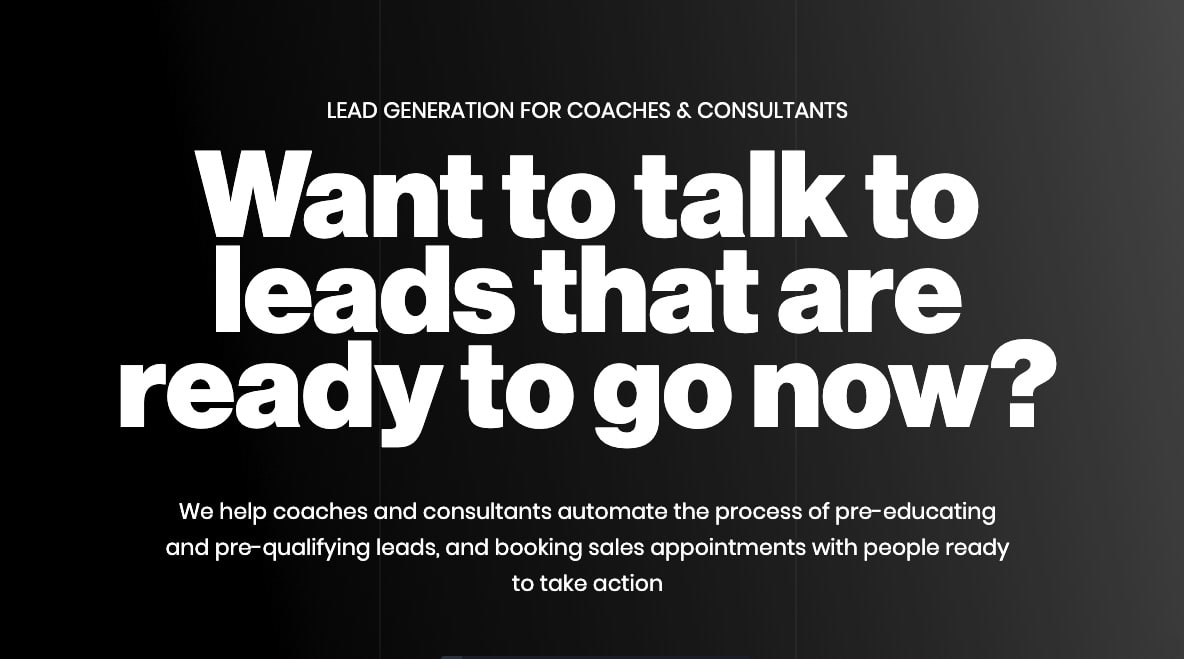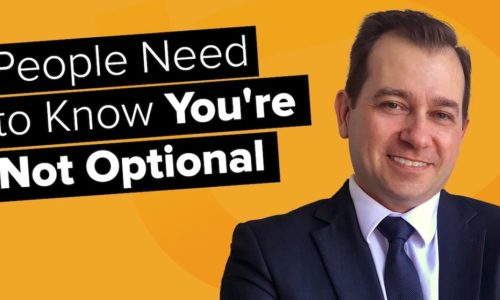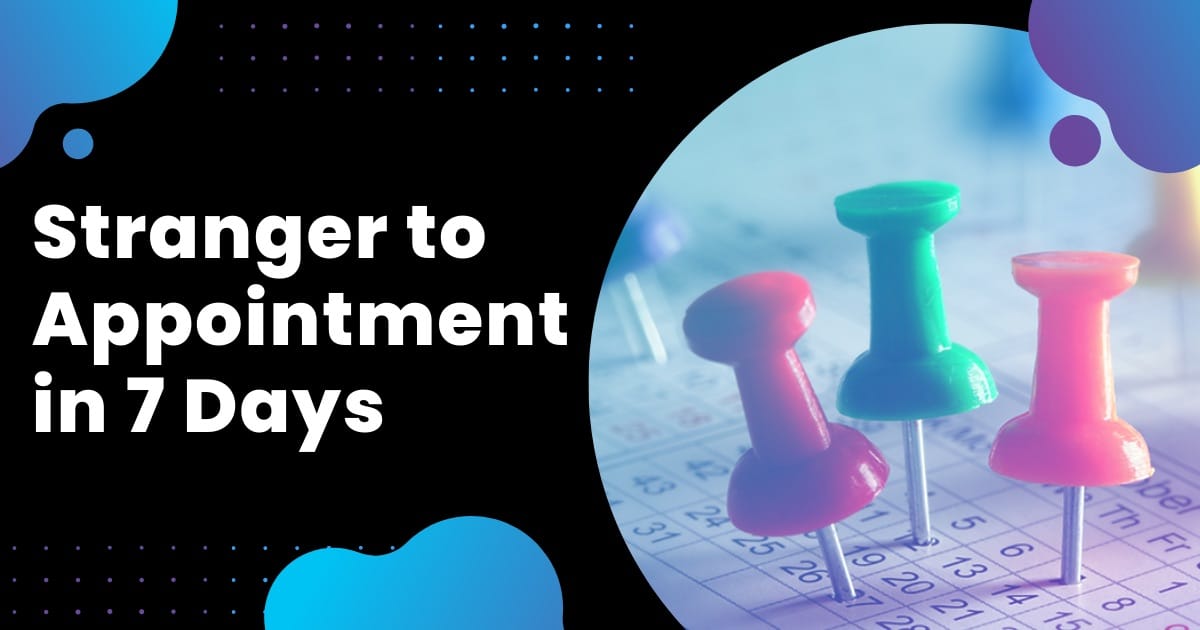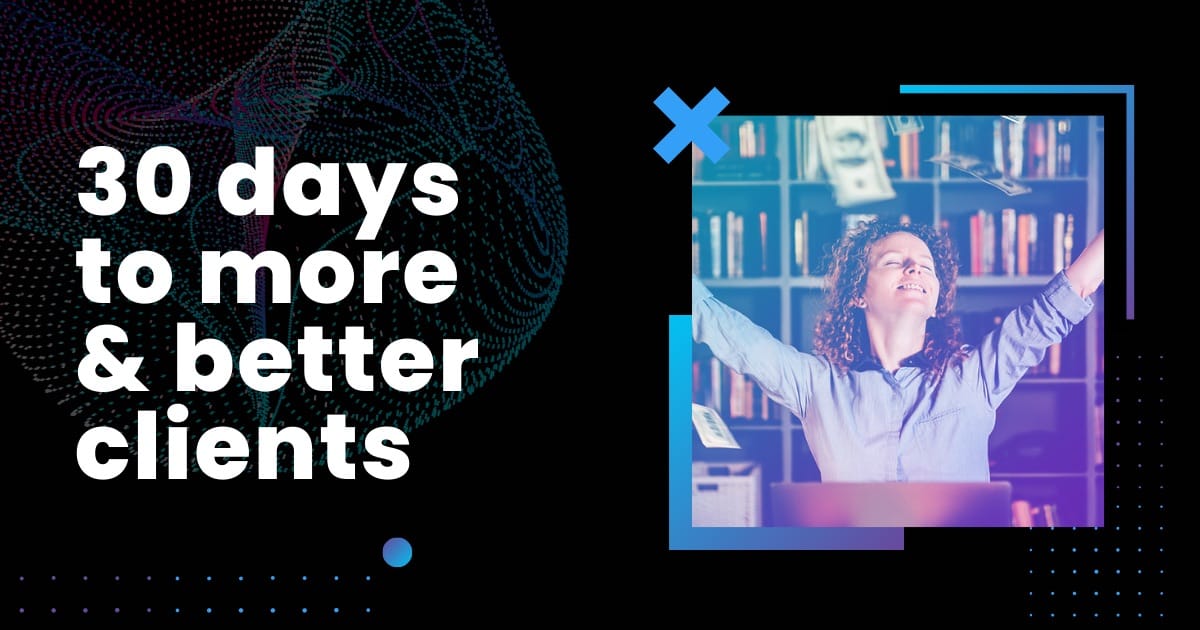In the early stages of COVID, “pivoting” became the buzz word in the business community. As consumers left the market it became so easy to become “market focused” and let what was going on outside your business drive business decisions (for some this was unavoidable)…but instead of doing something different, why not take this opportunity to double down on what really works for your business?
A market crisis does not have to mean your product or service becomes a discretionary spend. A downturn simply shines a light on problems in your business…more specifically your market-to-message mismatch, and an inability to show more people how you can make their lives, or businesses, better.
If your product solves a real problem and you can highlight why taking action now, over postponing the decision, will benefit your potential clients both in the short term and long term, then people will buy.
Solve a problem that people will spend money on, and have the money to spend.
If you already have an audience, then you will be looking for something to sell to them, but let’s assume you’re looking to expand your customer base with an existing product or service…the activity now is to identify who you are selling to, and what your offer is.
This does not mean, “I’m an accountant and I offer tax and accounting services to businesses.” No kid Sherlock…you and every other accountant.
The key is specificity in who you target, and the results you achieve for them.
If you’re already in business, you probably already have a good idea of the clients you want to work with, and those you don’t. Which ones can you systemise more so you spend less time on them while still delivering outstanding results, and are willing to pay for the results you deliver?
It’s so much easier when you have identified who you want to work with, to then start attracting them. When you can talk to the specific problems they are experiencing, can show you have a solution, and that solution has worked for others, you will find it so much easier to find the clients you want to work with.
People pay for specialists because they work on specific problems, and have a track record of such. People will pay a premium for greater assurance of a successful outcome than they would with a generalist.
Take for example our lead generation for coaches and consultants page, where we start with this
We have identified that for experts, one of the biggest problems they have is not just getting in front of people, but getting in front of the right people that will value their expertise and are ready and able to do something with them.
So the content on that page speaks to the pain of inconsistent leads, and doing meetings with people that think they are doing the coach or consultant a favour and inevitably ask for a proposal that always needs chasing up, and often goes nowhere. And then we flip that on it’s head by telling them there is a way to pre-educate and pre-qualify people for sales appointments, and it can be automated.
So we’re selling marketing funnels but notice we don’t lead with that. We start by focusing on a desirable outcome and then an “elevator pitch” to say who we deliver it for and what we do. But notice still no mention of marketing funnels – we know they need a “marketing funnel” but it’s still too early for us to have them pre-judge what we are offering.
To get your marketing message right you need to understand the motivations of your ideal client – what problems they are experiencing, and what success looks like for them.
Only then can you frame your value proposition.
Your value proposition (unique buyer’s advantage, elevator pitch…whatever you want to call it) at its most base elements should start by framing who you work with, and what outcome you deliver for them, and then how you do it.
Which then makes the offer so much easier
You know how you’re positioning yourself and you know how you’re messaging to attract the clients you want, so the offer is simply the solution to the problem – the answer that, to the right person, is exactly what they are looking for.
It all hinges on understanding your ideal client. The temptation will be to go broad to not isolate potential outliers, but this is where marketing starts to fail. Unless you are a big brand, you don’t have the resources to go broad in your marketing, so pick the niches and ideal clients you have the bandwidth to handle, but market to one at a time only.
A properly constructed website can cater for different niches and ideal clients by having a home page that quickly and effectively filters visitors to the page that is most relevant for them, but think of this as “accidental” traffic.
Your marketing success is all about specificity, so 95% of the time your marketing campaigns won’t be directing people to your home page. An effective marketing strategy will target one client avatar at a time and direct them to the page that is most relevant for them. Start thinking paid traffic campaigns, e.g.:
- Google Ads – they search queries people are using will determine the most effective page experience for them, and your Google Ads campaign will be constructed to filter traffic based on specific queries.
- Facebook Ads and other social ads platforms – targeting options you set based on your ideal client will determine both the ad that is displayed, and the landing page you direct people to. The motivations of someone in heir twenties, are very different to someone in their fifties, so you have the ability to exclude certain demographics, or to control their experience with you.
Ultimately what you need to understand is that if you have been in business for a while, you have at least the building blocks in place to start marketing your business better. If you’re experiencing a downturn in your business, or you just want more consistent sales, it’s a matter of having a good look at your business to work out where you need to focus – you might not need to pivot and do something different – you just need to do what you are doing better.
Have a look at your website – it’s probably a good reflection of how you talk about your business:
- Does it differentiate you in any way from your competitors?
- Does it focus on what you do, or the outcomes you achieve for your clients?
- Do your ideal clients know hey are in the right place? That your solution is better for them than one of your competitors?
If your website is not setting you apart, then there’s a good chance when someone asks, “What do you do?” that you and your staff will answer with a broad business category answer.
Start focusing on who you help, what you do well and the outcomes you achieve, so when someone asks what you do, you can be truly excited about the success you help people achieve – something people want to know more about.
When you start moving in this direction, your marketing will become better, you will be excited about being in front of more people, and your business will move in a direction you can be passionate about and more people will want to get onboard.











